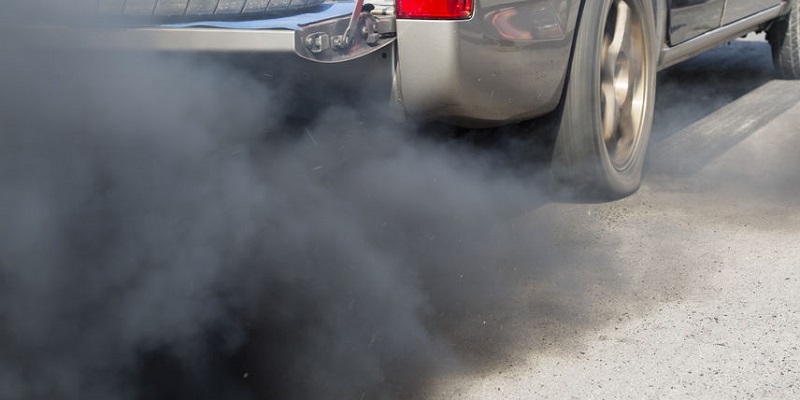Complaints about coal rolling in Colorado increased by 5 percent between 2014 and 2016. Now new state legislation gives police a better tool for reining in coal-rollers’ pollution politics.
“Black,” “noxious,” “toxic,” and now, “illegal” are some of the adjectives that can describe the thick clouds of smoke that pour from the exhausts of some trucks on Colorado streets and highways.
Gov. John Hickenlooper promised to sign into law a bill prohibiting excessive exhaust clouds with a $100 fine for violators. It’s aimed directly at a fad called “coal stacking” or “rolling coal” in which diesel truck owners modify their engines and exhaust systems to emit the thickest, sootiest clouds possible. It’s seen as a macho show of power, a political statement, and a reply to environmentalists and liberals.
“Coal rolling is a cruel cut to people with asthma or other respiratory issues. We are well to be rid of it,” Hickenlooper said in a story reported by Bruce Finley of the Denver Post. The state will follow New Jersey as the only other state to outlaw the pollution rigs.
Sooty Clouds of Spite
The New York Times describes the countrywide rolling coal fad as a way to “belch black smoke, at pedestrians, cyclists, and unsuspecting Prius drivers.” They say the practice can be viewed as a “juvenile prank, a health hazard, a stand against rampant environmentalism, and a brazen show of American freedom.”
A form of free speech maybe, but not exactly free. The practice could cost the health or even the lives of bystanders. The American Cancer Society links diesel exhaust exposure to lung cancer. Just short-term exposure to diesel smoke can increase the risk of heart attacks, strokes, cancer, and lung disease.
An estimated 38,000 people around the world die early each year because of exposure to diesel exhaust, according to the research group Environmental Health Analytics with University of Colorado researcher Daven Henze.
The more immediate risk, though, is auto accidents caused by blinding soot clouds, which contain carbon dioxide, carbon monoxide, and a series of chemicals known as PAHs.
The New York Times reports that complaints about coal rolling in Colorado increased by 5 percent between 2014 and 2016.
And if you change your mind about being a coal roller, it will cost you still. By some estimates, restoring tricked-out coal-rolling trucks to meet federal clean air standards can cost $2,000 to $6,000.
Colorado’s Pollution Politics
But isn’t tampering with emissions-control systems illegal in the U.S.? The Clean Air Act bans drivers from installing any equipment with the purpose of bypassing the emissions mechanisms of a vehicle, and those found guilty of the practice may be fined up to $2,500. Enforcing this law is difficult at best.
Colorado legislators have faced the coal rolling issue twice before but failed to pass a bill, mainly because of perceived opposition in rural areas, the Denver Post reported.
Colorado police have been passing for passage of a bill, to protect the public, and themselves: Police have sometimes found themselves the targets of drive-by exhaust cloud attacks about which they could do nothing. Authorities found it difficult to enforce existing laws against tampering with engines’ anti-pollution systems.
Fort Collins Democratic state Rep. Joann Ginal said she was smoked out last year outside a presidential campaign event featuring former President Bill Clinton, the Post reported. And a few days after the Legislature cleared the bill, a driver with Texas license plates smoked her. She suspects her legislator license plates made her easy prey.
Ginal said:
“They do it to people in Priuses, people on motorcycles, and people just walking down the streets. Some are older people who have chronic respiratory conditions. The smoke makes it worse. It is mean. It is more young people who are doing this … They think it is funny.”

